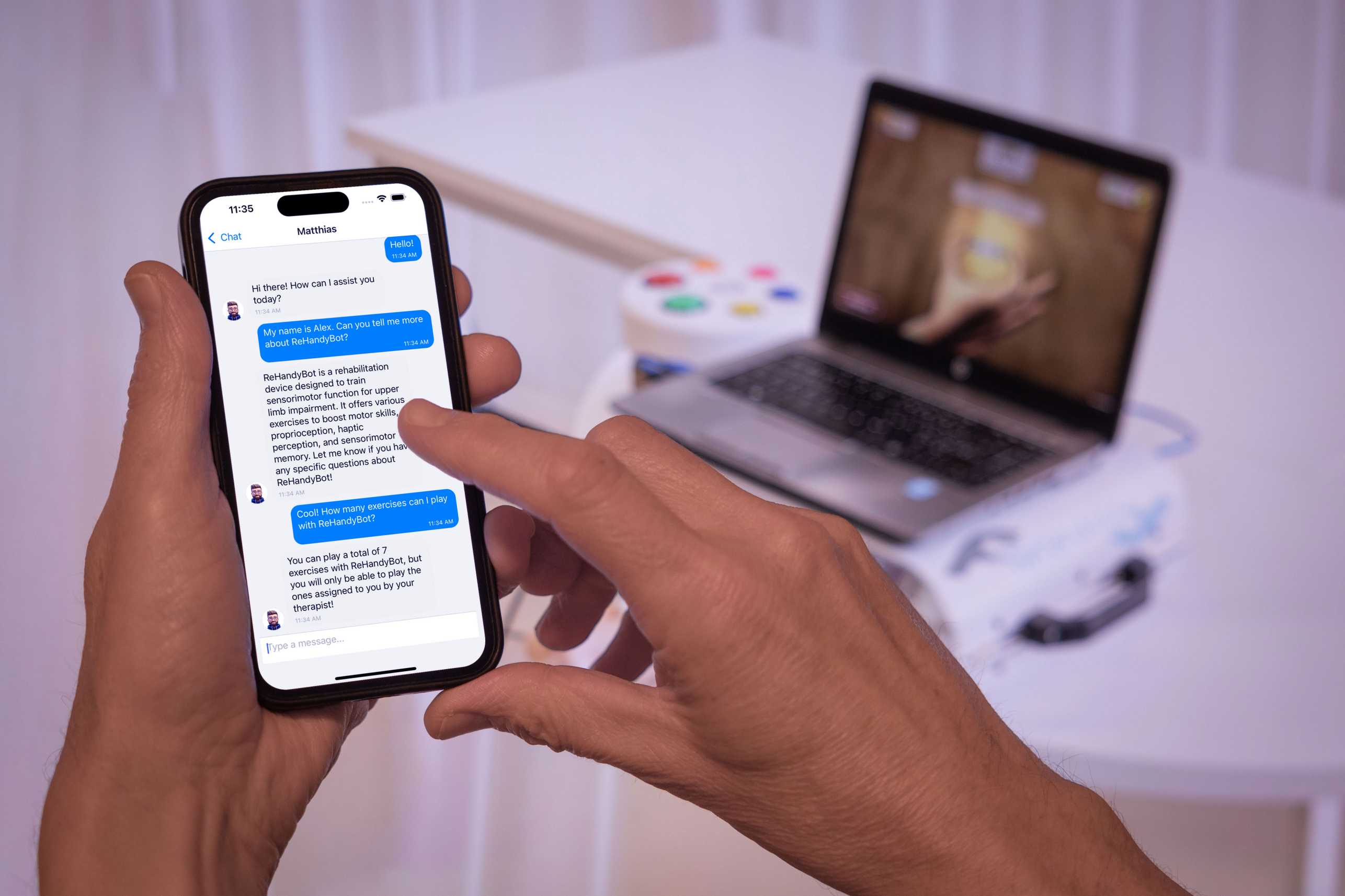RESC and Suva awarded research grant to promote outpatient and residential rehabilitation
The ETH RESC – Suva research programme funded two promising projects to strengthen outpatient and residential (near home/workplace) rehabilitation with a focus on people with accident-related injury.
Current accident-related rehabilitation in Switzerland is a combination of in- and outpatient programmes with downstream checks and gradual reintegration. However, current outpatient and residential treatment programmes are mostly monodisciplinary (single physical therapy, occupational therapy, etc.) and lack cost-effective and high-quality remote services compared to inpatient rehabilitation, which has made a large technological progress as seen by digital case transfers, new kinds of tele consultations between clinics, and technological assisted training concepts.
Funding for this programme is supported by RESC’s strategic partner Suva within the framework of external page ETH’s Rehab Initiative.
RehabCoach2.0 – scaling up unsupervised rehabilitation by combining robotics and an AI-based mobile application
Upper limb sensorimotor impairments are common after neurological or accident-related trauma and can severely affect quality of life. Rehabilitation can improve this; however, the dose of therapy patients receive after an injury is often limited due to costs and available clinical resources. Unsupervised technology-supported rehabilitation, in the sense of easy to use and engaging technologies that could be used independently, is a promising approach to address this gap and support quality rehabilitation along the continuum of care, from the clinic to the home of patients.
In the present project, we propose to scale up and further validate the RehabCoach platform, i.e., the combination of an easy-to-use rehabilitation robot training upper limb function and a digital coaching mobile application to motivate patients and assist them in engaging in self-directed therapy.
“The RehabCoach platform was already tested in a few stroke patients with promising results on usability and acceptance.”Prof. Olivier Lambercy
Professor Olivier Lambercy states the following about the project’s objectives: “The RehabCoach platform was already tested in a few stroke patients with promising results on usability and acceptance. We will now explore how to extend this to trauma patients and evaluate its effect during a longer intervention directly at the patients’ home. We will additionally perform a detailed economic analysis of this therapy concept to initiate discussions with the relevant stakeholders regarding the reimbursement of this therapy concept.”
As a tight collaboration between the Rehaklinik Bellikon (Suva clinic), the Clinica Hildebrand in Brissago, and the Center for Digital Health Interventions, this project brings together interdisciplinary experts in rehabilitation. It will serve as a first proof-of-concept towards the broader implementation of novel, technology-based rehabilitation solutions within the Swiss healthcare system, potentially making these new approaches more accessible to patients.
Project timeline: Q2/2024 – Q1/2026
Smart Technology Applications in Rehabilitation Training at Home (START Home)
Traumatic brain injury (TBI) has an estimated worldwide annual incidence of over 27 million accidents being the leading cause. Patients with TBI show cognitive and motor impairments of the upper limb, leading to difficulties in activities of daily living. The subtending visuomotor integration difficulties are often clinically observed, but rarely investigated by objective measures. The aim of this project is to develop an integral smart glasses solution customized for accident-related TBI to measure visuomotor integration difficulties in a standardized way and present the patients with specific support during inpatient and home-based rehabilitation.
Modern smart glasses, such as Microsoft HoloLens 2 and Apple Vision Pro, can display virtual stimuli overlaid onto the real world while built-in sensors measure the eye, hand, head, and object movements. Preliminary work showed that the technology is sufficiently mature to monitor patients’ rehabilitation exercises and to track the recovery progress based on objective measures. In close collaboration with Lucerne Cantonal Hospital (LUKS), the project aims at demonstrating these benefits in the rehabilitation of patients with TBI. In fact, the application of smart glasses – allowing eye, hand, head, and object tracking – seems ideal to further understand and support the rehabilitation of TBI at home.
“The rehabilitation community is increasingly interested in investigating smart glasses recognizing the technology’s benefits of holographic information displayed into real-world environments.”Prof. Mirko Meboldt
Professor Mirko Meboldt states the following about the project’s key idea: “The rehabilitation community is increasingly interested in investigating smart glasses recognizing the technology’s benefits of holographic information displayed into real-world environments. Despite the state of the art in the specific field of rehabilitation, smart glasses are proven to be effective mature systems for user guidance, support, and analytics for a wide range of applications. Once the technology is implemented in an application, additional scenarios can be easily modified and created. This is highly relevant for the small patient groups of SUVA patients with highly personalized rehabilitation needs.”
Project timeline: Q4/2024 – Q3/2026

Comments
No comments yet